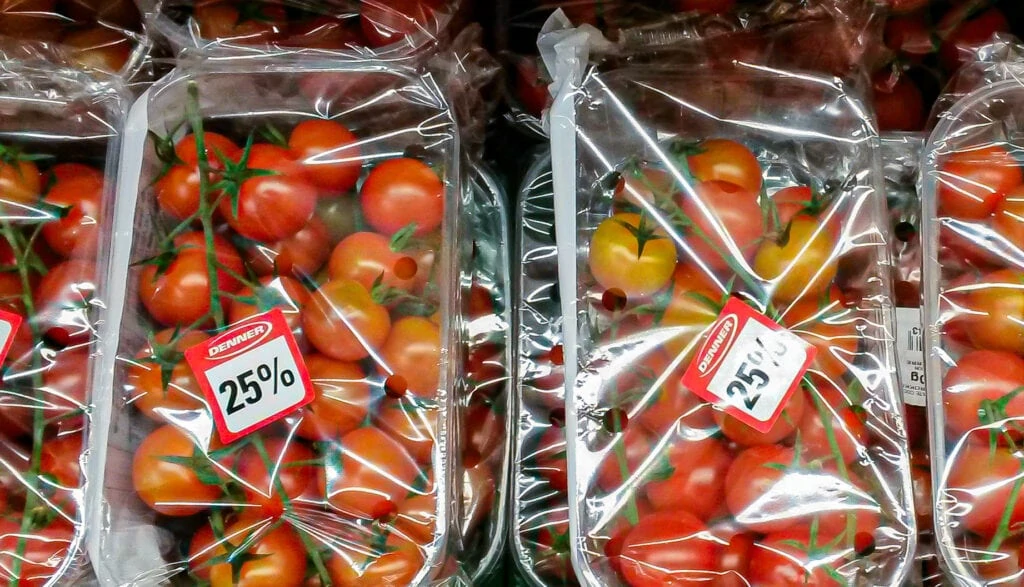After Coop has already been doing without cherry tomatoes from the area since 2017, Migros and its subsidiary Denner are now following suit. On request, the two wholesalers informed that they had already decided at the end of 2017 to remove products from Western Sahara from their range for reasons of international law. This means that the three largest Swiss retailers have banned products from the conflict area from their shelves.
terre des hommes schweiz and other organisations have been drawing attention to the problem of melons and tomatoes from the occupied Western Sahara for years. The agricultural products come from the area near the city of Dakhla, where they are grown against the will of the Sahrawi people and in a manner that is problematic under international law.
According to the UN, Western Sahara, which has been partially occupied by Morocco since 1975, is a so-called territory without self-government, and Switzerland also follows this definition. According to international law, the exploitation of resources in such an area is only legal if the people concerned have given their consent. However, the Sahrawi people repeatedly speak out against these economic activities in Western Sahara and demand that no trade in products from the occupied territory be conducted, as this supports the occupying power and cements the status quo of the occupation.
Difficult declaration
Migros and Denner have long taken the view that it is sufficient if the products are correctly declared in the shops for the customers. However, this was not always the case, and in supermarkets tomatoes from the Western Sahara were repeatedly labelled as "Morocco".
After media attention and a cash report on the subject in 2016, retailers promised improvement. From then on, the products were finally declared for import in accordance with the law - at least as far as this is comprehensible, because Morocco refuses to correctly declare products from Western Sahara for export.
So it was obvious to take the foreign trade statistics for 2019, which were completed in the middle of this year, with caution: for the first time since the introduction of the "Western Sahara" category in 2016, they show no imports of melons and tomatoes from the region. When asked, Migros and Denner confirmed that they did not actually purchase any products from Western Sahara in 2019 and will continue to do so in future.
No products from territories occupied under international law
Migros informed terre des hommes schweiz that after "in-depth clarifications and legal opinions" they had decided in 2017 to "refrain from procuring products from territories occupied under international law", and that this also applied to Western Sahara. According to Denner, this decision was made in December 2017.
In Switzerland, it is now only Volg who, according to his own information, in exceptional cases makes use of tomatoes from the area and is content to correctly declare the products in shops.
terre des hommes schweiz very much welcomes the decision by Migros and Denner, but regrets that it was not made more widely available. This is because, unfortunately, the information situation in Switzerland on the Western Sahara and economic activities in this region is poor.
Problem too little known
We demand that the Confederation pursue a more active information policy on the subject and make it clear that Switzerland, in accordance with international law, follows the principle that economic activities in Western Sahara are only permitted with the consent of the Sahrawi people. For example, the companies, most of which come from the energy sector, which were founded with the then Federal Councillor Doris Leuthard The Commission has not been informed whether future projects will actually take place on Moroccan territory or in the Western Sahara, which Morocco refers to as 'southern provinces'.
Also other Swiss companies
In addition to Volg, who continues to sell tomatoes from Western Sahara on a case-by-case basis, other Swiss companies are involved in the ethically questionable and illegal business in occupied Western Sahara. LafargeHolcim operates a cement factory near El Aaiún and, according to its own statements, does not rule out the possibility that the cement produced there is also used for military and settler infrastructure. Swiss companies are also repeatedly involved in the transport of fish or phosphate from occupied Western Sahara.


